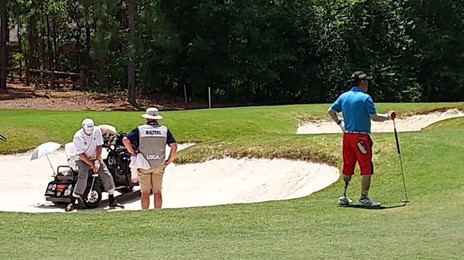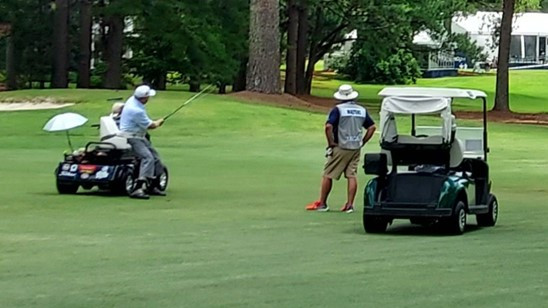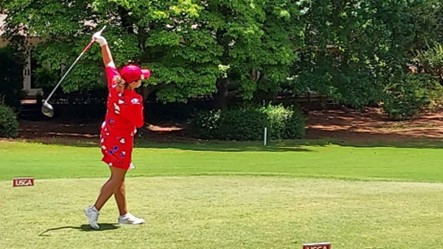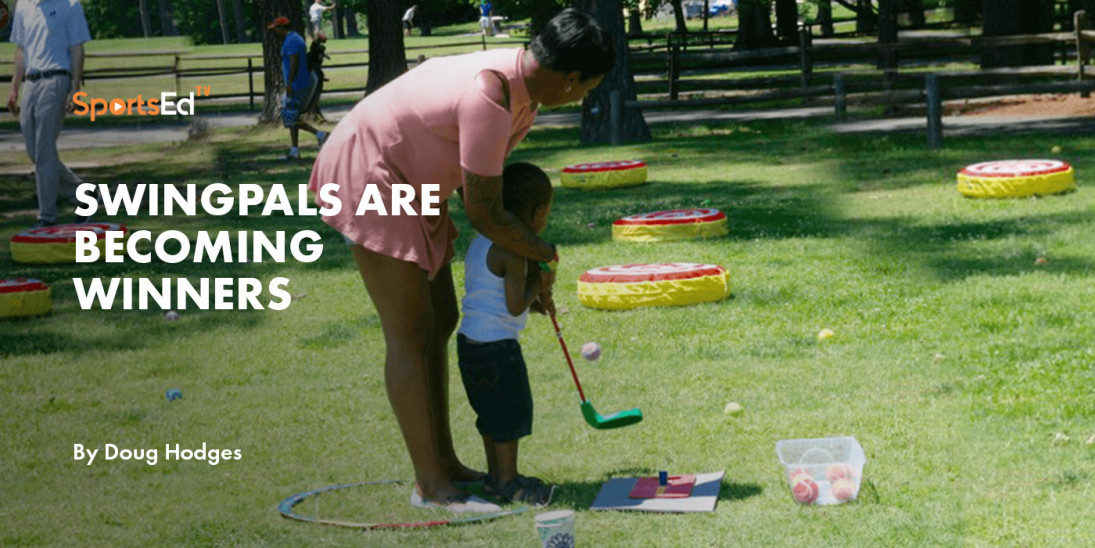Golf
Welcome and thanks for visiting...

The REAL Story in Golf

On July 18th I ventured south of Durham, North Carolina to Pinehurst. This is a pilgrimage many golfers make to enjoy our great game where Donald Ross gave us courses #1-#4 while embracing course #2 as his masterpiece.
Built in the infant stages of the 20th century, Pinehurst #2 is the only course to have hosted all five of the United States Golf Association’s most important events: the U.S. Open, the U.S. Women’s Open, the U.S. Amateur, the U.S. Women’s Amateur, and the U.S. Senior Open. To further crowd its hat of feathers, let’s not forget that #2 also hosted the PGA Championship and the Ryder Cup. So, to say Pinehurst #2 worked itself into being the mecca for golf is one very grand understatement.
But Pinehurst #2 really isn't the story in golf right now. However, Pinehurst's long history within our game certainly has jumped to the forefront...again.
With all the talk about the LIV Tour, one might think it is the major story in golf right now. I assure you it isn’t. This story belongs to the United States Golf Association. The USGA felt that the historical aspect of Pinehurst suited it well for one of its newest events and that the #6 course was worthy of hosting it.
Upon my arrival, everything about #6 looked like a national championship was being played there. From the press tent to the green and tee signs to a neatly dressed driving range with placards awaiting the name of the next competitor to practice, there was no confusing that what was going on at #6 was something very special.
You may have heard of it, the first annual USGA Adaptive Open. Finally, golf is on the grander scale of inclusiveness.

To have been able to compete in this national championship, one would first have to qualify. Not by a low score or ranking. No, it’s not that simple. A competitor must have an impairment. Categories were established by the USGA to include intellectual impairment, arm impairment, leg impairment, multiple limb amputee, neurological impairment, a seated player, short stature, and vision impairment. I cannot tip my hat more proudly for the incredible efforts made by the USGA on this event. This is the REAL story in golf.
An established number of individuals in each category had to be created. For example, the vision impairment category had six individuals competing, and the seated players had 12, and so on. The USGA sent out invitations to competitors to complete their field of 96 players from a total of 299 entries encompassing 29 states and 12 countries. The most decisive factor in determining the field was the handicap index of the entrants.
Dennis Walters, whom I have known for over 30 years, won the seated player category, and I watched him play for several holes on day one of the three-day event. Complete with his caddy and Gussie, his dog that helps him with his shows and is what we now call a support animal, was seated with him in his seat designed into Dennis' single-rider golf cart.

The competitiveness of Dennis is still very much within him and although his golf cart accident of July 1974 left him with a disability, he has lived with no such thing. Dennis’ trick shot show and message are at the very least inspirational and the golfing giants of our lives such as Arnold Palmer and Jack Nicklaus have confirmed that statement. He travels all over the country, spreading his message and amazing folks with his incredible skills.
I also followed Kellie Valentine for a few holes too. Kellie entered the Arm Impairment category and swung the golf club with her left arm. She lost her right arm above the elbow in a car accident back in 1993.
Her golf swing has beautiful extension, power, tempo, and athleticism. Watching her play made me want to purchase a grounds ticket as this event was free to spectators. Whatever that ticket would have cost, I would have paid.

Kellie has amassed 32 Eastern Amputee Golf Association Championships, including 16 Eastern Regional Championships, and while watching her play, it is easy to see why. Like Dennis, Kellie has never looked back.
Then, there is Simon Lee from the Republic of Korea. A 25-year-old professional golfer who has an intellectual impairment and autism. Watching him play was as if I surely had to have paid for a ticket to this show. His golf swing was as fine as any I have ever witnessed, and his short game was truly impressive. Finishing at 3-under par and winning the inaugural USGA Men’s Adaptive Open Division in a playoff over Sweden’s Felix Norman, also in the Intellectual Impairment category, left Lee feeling nothing less than, “I’m so happy. It feels like I’m dreaming.” He has now made history.
Kim Moore (Leg Impairment category) of Portage, Michigan, who is the women’s golf coach at Western Michigan University, won the USGA Women’s Adaptive Open Championship and led the event all three rounds. Like Dennis, Simon, and Kellie, Coach Moore has never looked back. Her life has been such an inspiration that the Women’s Golf Coaches Association created and named an award after her, the Kim Moore Spirit Award. The distinction to earn, not win, this award is to be of high moral character and in good standing at the college, making the nomination and actively participating within the guidelines of the golf program at her respective university. She hopes that her winning this championship will bring further focus to adaptive golf and the players who compete in it. No wonder there is an award with her name on it.
I walked onto the practice tee to speak with Spencer Easthope of Canada, who competed in the Neurological Impairment category. I noticed the smooth, non-rushing manner of his golf swing and asked him if he would mind if I watched him hit a few shots, and to that, he replied, “It’s why you’re here, isn’t it?” It was a wonderful conversation for me as I listened to him talk about the challenges of his neurological disability. He consolidated all his golfing motion into one simple sentence. “I don’t want to fall down.” His grin was infectious, and we both acknowledged the importance of balance in the golf swing.
I noticed his wife patiently waiting for him while getting some relief from the blistering heat of the day.
I walked over to speak with her and with an appreciation of my speaking with her, she told me about Spencer. I reiterate, with an appreciation of my speaking with her. I can tell you; I was moved by her never taking her eyes off her husband as she watched every swing while she told me all about Spencer and his family. The appreciation of the conversation was so entirely weighted on my side.
I have been blessed with such golfing experiences as playing Augusta National, standing on the 7th tee of Pebble Beach with a six-iron in my hand hoping it was enough club for the 120-yard shot, and swinging out of my shoes with a one-iron on the 16th at Cypress Point.
But nothing in my golfing career compares to what I experienced in Pinehurst at the inaugural USGA Adaptive Open Championship played on the #6 course that day. The well that fills all our golfing goblets and contains the very essence of our game was on full display and it's called camaraderie. Every participant belongs to the same club, and it isn't one for golfers with disabilities either but rather, golfers moving forward, together.
I tip my hat in thanks to the United States Golf Association for pioneering such an important annual event and to the players who now have a lifelong memory of playing for a national title. Thank you for showing us that giving up is never an option.
*The 2023 USGA Adaptive Open will return to Pinehurst and is open to spectators.








